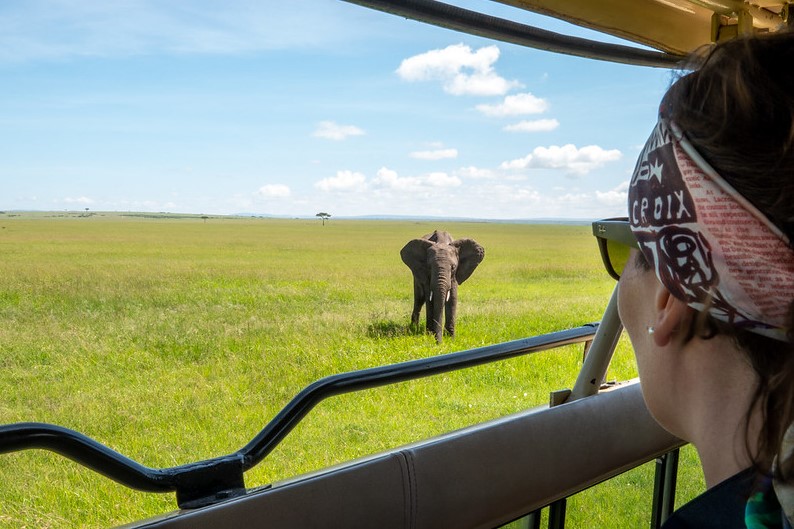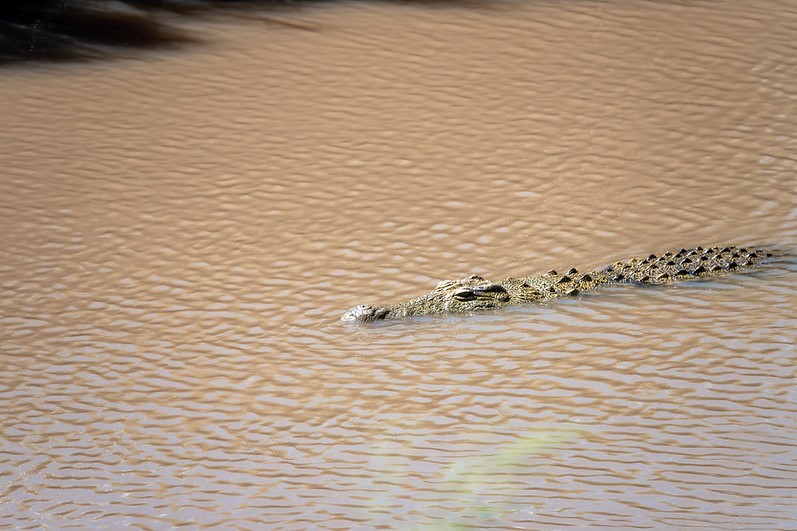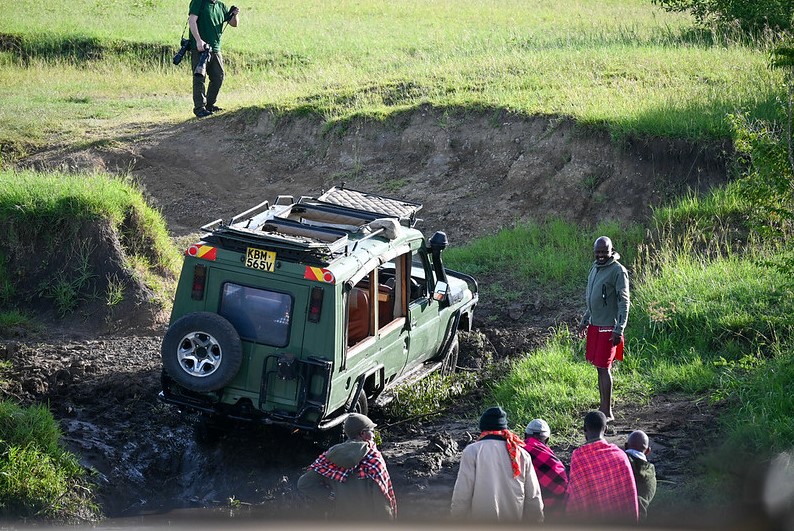Going on safari is incredibly exciting, but it’s important that you don’t forget - you’re in a wild environment, surrounded by wild animals that can be dangerous. While fatal encounters with wild animals do happen on safari, they’re exceedingly rare, and if you follow the rules, you’re unlikely to be in any danger. Knowledgeable and qualified guides will always take precautions to ensure your safety, and every year millions of people enjoy safe safaris that operate without a hitch.
There are a few safari “no-nos” to be aware of. Some of these relate to safety, while others are about respect. After all, you’re in a foreign country with different customs, sometimes interacting with local tribes and people who live very unique lifestyles, so it’s important to remain respectful of them. Follow these guidelines to ensure that your safari will run smoothly and safely.
Tip #1 - Don’t walk around your safari camp or lodge at night by yourself
Your safari camp will be located within a national park or game reserve, so wild animals will be roaming freely, sometimes coming close to your camp. Safari camps are well guarded, but you should make sure a local guide is always with you when you’re walking around at night to deter predators and keep an eye out for hazards like potholes that might pose an injury risk. Most lodges offer local tribal warriors who will help you navigate around the area safely, but even when you’re accompanied, you should stay close to the camp and don’t wander off. You will be briefed on all appropriate safety measures and rules when you arrive at your camp or lodge.
Tip #2 - Don’t make loud noises while on safari
Always remember that the animals you’re seeing are in their natural habitat. They are wary of predators and can be easily startled, which could result in the animal running away, ruining the sighting, or worse, charging at your safari group and endangering everyone. Stay calm and quiet so you don’t spook them. Try not to make any large or sudden movements, and keep a respectful distance. You should never try to touch or feed any wild animal.
A note about weapons: Guides in Botswana, Tanzania & Kenya do not carry a weapon because these countries have similar gun laws to Australia and it is illegal to carry a gun that is not stored safelyin most National Parks & Reserves. Guides are instead trained to recognise animal behaviour and based on the behaviours exhibited, guides will advise travellers to stay still and silent, or to move away slowly. Rangers or guides on a walking safaris may carry a loaded gun or a traditional weapon for your protection. In some countries (particularly South Africa), guides carry loaded guns on safari. These are for last resorts only and any use of a weapon to harm a wild animal on safari is tragic. If everyone does the right thing, the use of weapons won’t be necessary. Safari-goers should never bring their own weapons into a national park or game reserve.

Tip #3 - Be careful with your food and drink
Introducing foreign food or drink into a national park or game reserve can be harmful to the native environment. The scent of human food can also attract and agitate animals, creating potentially dangerous situations. Only water, and food supplied or approved by your guide, should be brought on safari. If you’re on a camping safari, make sure you don’t store any food in your tent! This can attract all sorts of scavengers, from insects to hyenas and wild dogs. You should also keep your tent zipped up at all times to prevent curious creatures from sneaking inside.
Tip #4 - Only swim in areas known to be safe
Crocodiles and hippos lurk beneath the depths of many African waterholes, and account for a number of deaths each year. As a general rule, you should avoid swimming unless your guide confirms you’re definitely in a safe area.

Tip #5 - Ditch your bright, white and black clothes
There’s a reason why traditional safari clothes have always been neutral, earthy tones. Animals are particularly sensitive to clothes that are white, black or brightly coloured. These colours are often associated with predators or other dangers, and may cause game to flee, ruining your sighting. Dark clothing also attracts insects like the Tsetse fly. Opt for neutral and subtle coloured clothing that is comfortable, durable and easy to move in.
Tip #6 - Respect local culture
It’s best to wear modest clothing on safari, to be sensitive to local cultures. Covering up has the added bonus of protecting you from the sun and from insects. In addition, make sure you ask for permission before taking photos of locals. In some cultures, having your photo taken is considered to cause bad luck or even a curse - always ask first!

Tip #7 - Leave no trace
Don’t leave any rubbish behind. This includes food waste, cigarettes and plastic. It can be harmful to the local wildlife, and can detract from the beautiful natural environment that everyone is coming to see.
Tip #8 - Be in the moment
Having photos to look back on is great, but remember to put the camera down for a while and just take everything in. Snapping 100 photos per minute can also startle animals and ruin the viewing experience for everyone. It’s best to adjust your camera settings to silent, or speak to your guide about when it’s appropriate to take photos. One of the major benefits of joining one of our Australian guide led small group tours, is that the guide will take and edit great photos for you. These photos will be available on our Flickr page for you to download and share free of charge.
Ready to start planning your african safari?
Check out our comprehensive guide to safari in Africa or book a consultation with an African safari experts to get an experts ideas and start planning your safari. Our private and custom-built luxury adventures are individually crafted to meet your wildest dreams! Secluded beach getaways, romantic safaris, honeymoon surprises, unique accommodation, or something a little weird and wonderful, tell us your wildest adventure dreams and we’ll make them a reality.